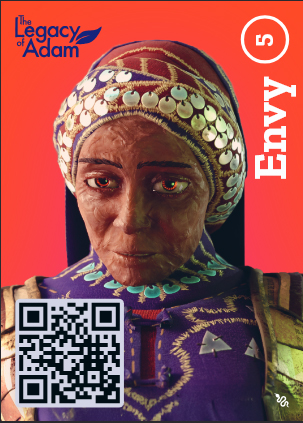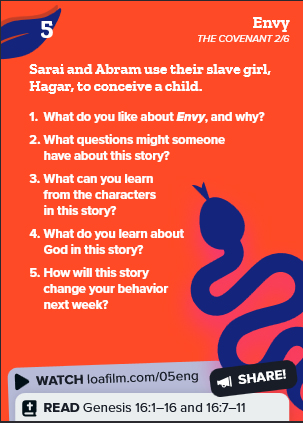Featured Videos
Ep 4: Count the Stars
Abram, a man of faith, is called on a miraculous journey. As he faces doubt and sacrifice, a divine promise ignites his hope
Ep 6: A Son
Abraham and Sarah receive news of a son, Isaac, from God, despite their old age.
Ep 7: Torn
Abraham’s promise of a son is fulfilled with Isaac’s birth. Joy turns to tension as Ishmael’s jealousy grows.
Ep 8: Unbearable
Abraham’s faith is tested as he prepares to sacrifice Isaac, thus highlighting the challenges of adhering to divine will.
Ep 9: Sacrifice
Abraham’s faith and obedience earn God’s promise of blessings, a lasting covenant, and a key role in His plan for humanity.
Ep 5 | Envy
Sarai’s plan for Abram to father a child through Hagar leads to jealousy and conflict, but a divine encounter gives Hagar the strength to return and face her challenges.
Bible Reference
Related Sources
Related FAQs
To delve deeper into the rich symbolism and theological interpretations surrounding Abraham’s covenant with God, consider exploring our scholarly articles that analyze these themes from various perspectives.
In the ancient world, it was common for a barren wife to offer her servant to bear children on her behalf. This practice was legal and socially accepted. But even if something is legal, it’s not always wise. The Bible presents this decision as driven by impatience, not by God’s instruction.
Yes. The Qur’an affirms that Abraham had a son, Ishmael, through Hagar. However, it doesn’t present the tension between Hagar and Sarai in the same detail. The biblical account offers a more human and emotional picture, showing both women’s struggles and God’s care for them.
Abraham had already received God’s promise of a child, but years had passed without fulfillment. Like many people, he became impatient. Instead of waiting, he tried to “help” God’s plan. It’s a warning that even those with strong faith can falter when God’s timing feels slow.
That’s one of the tensions in the story. Hagar didn’t choose this path, yet she’s caught in Sarai’s envy of her bearing child and Abraham’s passivity. Still, God sees her suffering. The angel (referring to God himself) calls her by name—a rare and powerful moment in Scripture—showing that God values the overlooked.
Yes. Hagar is honored in Islamic tradition, especially in the context of the pilgrimage (Hajj). Her desperate search for water is commemorated in the ritual of Sa’i between Safa and Marwah. Although she is not a prophet, her perseverance and God’s provision through Zamzam are deeply respected.
God often meets the lowly and the outcast. In this case, He seeks out Hagar when she runs away and speaks to her with dignity. This foreshadows a recurring biblical theme: God sees the rejected and intervenes on their behalf—even when the “chosen” are acting unjustly. Sarah is visited by angels later.
Yes, it raises difficult questions. The Bible doesn’t shy away from the moral failures of its heroes. Abraham is not praised for this decision—instead, the story shows the consequences of acting outside God’s design. Biblical faith is honest about human failure.
Because God is generous. Although Isaac will carry the covenant line, Ishmael is still Abraham’s son. God promises to make him into a great nation as well. This shows that God’s plans are bigger than one family line—He cares for all people, even those outside the central promise.
It’s one of the most intimate moments in Scripture. Hagar feels alone, humiliated, and forgotten—yet God appears and speaks to her. She realizes she’s not invisible. In calling God El Roi, she gives Him a name based on personal experience: a God who sees the suffering no one else notices. “Good sees”.
















